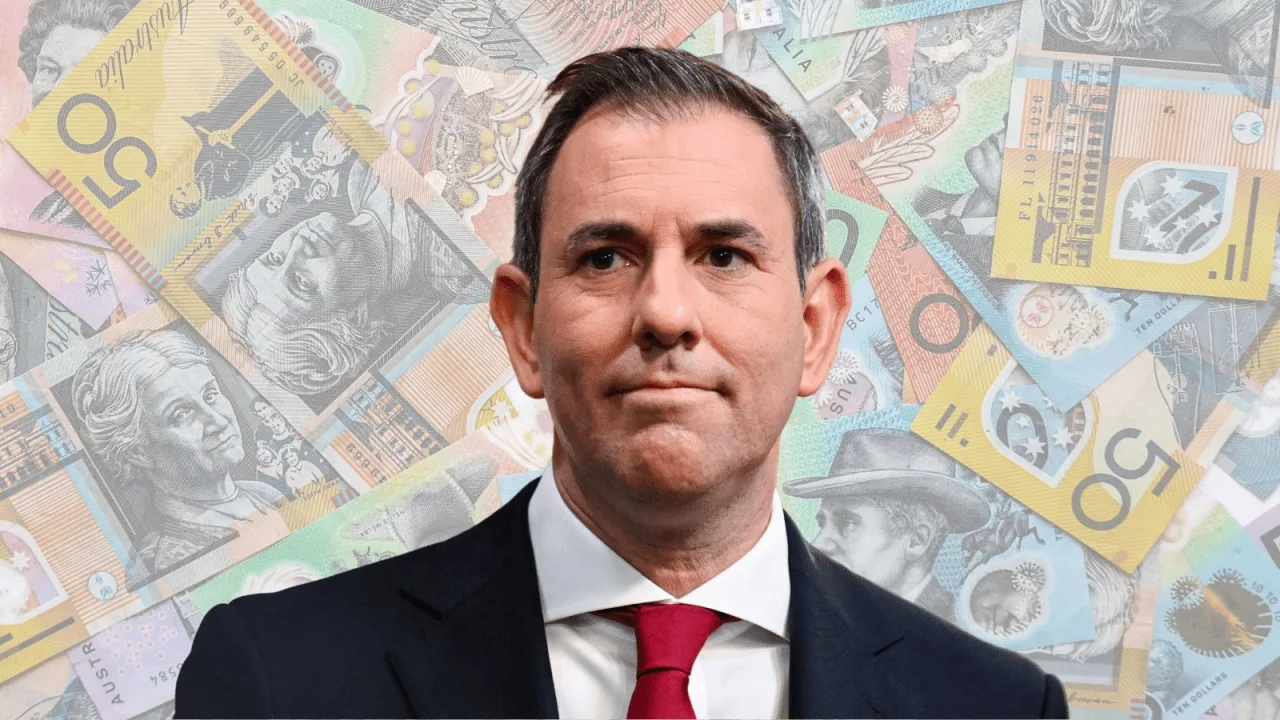Treasurer Jim Chalmers is “pouring cold water on investment” and “penalising” Australians taking on financial risk through Labor’s proposed changes to superannuation accounts above $3m, a leading fund manager has warned.
Mr Chalmers on Wednesday vowed a boost to Australia’s productivity and deliver major tax reform in a speech to the National Press Club.
His promise drew criticism from Wilson Asset Management founder Geoff Wilson, who lambasted Labor’s plans to alter how large superannuation funds are taxed – which includes targeting unrealised capital gains.
“You can’t say the economy lacks dynamism and innovation, then introduce a tax that penalises long-term investment and risk-taking,” Mr Wilson told SkyNews.com.au.
“Taxing unrealised gains in superannuation does the opposite of what’s needed — it punishes prudence, discourages capital formation and undermines confidence in the rules of the game.
“The Treasurer admits we need more innovation — while taxing the very gains that fund it.
“You can’t light a fire under the economy by pouring cold water on investment.”
A common criticism of the plan to tax unrealised gains on assets – including properties and shares – above the threshold in super funds is the impact it will have on small businesses.
Many small business owners put assets in their self-managed super funds (SMSF), but under Labor’s plan those above the threshold would be forced to pay tax on paper gains.
Similarly, some investors use their SMSF as a low tax investment vehicle for startup businesses.
Wilson Asset Management sent a note to shareholders warning if the tax were applied to a company like US$40b design platform Canva, which achieved its massive valuation after 18 funding rounds, the company would have failed.
“Under taxing of unrealised gains every funding round would require tax to be paid on a hypothetical valuation,” the report reads.
“Most startups operate with negative cashflow and when capital is raised it is to fund growth, not to provide liquidity to investors.
“Therefore, there is no liquidity to pay tax on an unrealised gain.”
Labor’s changes to super accounts $3m will also not be indexed and capture more and more Australians over time.
AMP’s chief economist Shane Oliver said the lack of indexing across the tax system, including under Labor’s proposed super tax changes, was something the government needed to change.
“We should be looking at removing areas where, as far as possible, we’re not indexing,” Mr Oliver told SkyNews.com.au.
“The ideal should be indexing things, not leaving more parts of the tax system unindexed and at the behest of what future governments might do.”
The government insists its super change affects only the top 0.5 per cent of accounts, however, modelling from AMP deputy chief economist Diana Mousina suggests otherwise.
“An average 22-year-old today, who’s earning average full-time earnings, will hit the cap when they get to about 62 years old on my analysis,” Ms Mousina told Sky News.
“So that’s before they actually reach retirement.”
She warned the government’s failure to index the $3 million cap means growing numbers of Australians will eventually be drawn into the tax net.
“My estimates were actually, I think, understating the amount of people that will hit the cap because I used quite low return assumptions,” Ms Mousina said.
She also flagged broader economic distortions that may result from the policy as people try to find a way around the taxes.
“If people know that their super is going to be hit, then inheritances will go elsewhere,” she said.
“More people will probably go to purchase a home, which has implications for home prices in the future.
“So people will find a way around this system to try and reduce their taxable income as much as possible.”


